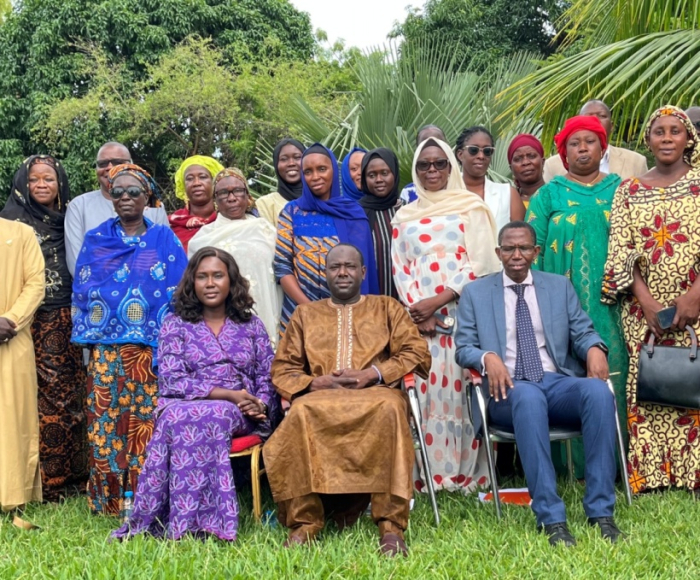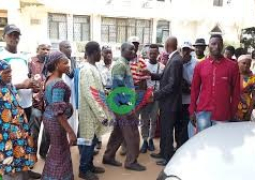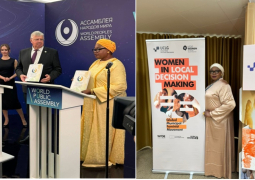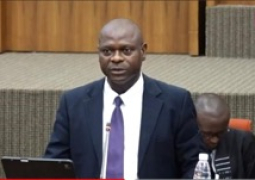
Held at the National Climate Action Centre (NCAC), University of The Gambia (UTG) Kanifing campus, the training funded by NovaSphere and Environment and Climate Change Canada, seeks to equip women with the knowledge, tools, and confidence to engage in national and regional climate policy discussions, strengthen local resilience, and advance gender equality in climate governance.
Opening the training, Dr. Bintou Dibba, coordinator of the NCAC and lecturer at UTG, described the initiative as a milestone for inclusive and gender-responsive climate action in The Gambia.
“This initiative marks a significant milestone in our collective efforts to promote inclusive, locally led, and gender-responsive climate action in The Gambia,” Dr. Dibba said. “It is the result of deep reflection, honest dialogue, and cross-country engagement about the state of women’s participation in climate governance, not just in our country but across the region.”
Dr. Dibba explained that the program was conceptualised after a regional climate dialogue in Togo, which brought together participants from The Gambia, Ghana, Liberia and Togo. A core finding was that women’s voices in climate action are often welcomed but rarely influential.
“Too often, even when women are invited into climate discussions, they are treated as add-ons-present in numbers but not in influence,” she said. “To build true women’s agency in climate action, we must first invest in their capacity. This program is not just training but a platform for women to strengthen their voices in national and regional climate spaces.”
Prof. Sadat Yaffa, director of WASCAL (West African Science Service Centre on Climate Change and Adapted Land Use), highlighted the urgent need for gender-focused climate responses.
“When the rainy season shortens or floods destroy crops, it is women who must find ways to feed families. When water sources dry up, girls walk longer distances, often missing school,” he said. “This is not just a climate issue; it is a gender justice issue.”
He urged that empowering women with resources, land, education, and leadership opportunities is critical for building resilience, noting that 70% of Gambia’s agricultural workforce is women.
“We cannot solve the climate crisis without including the voices, knowledge, and leadership of women and girls,” Prof. Yaffa emphasised. “A climate-resilient Gambia is not possible without gender equality and gender equality is not possible without climate justice.”
Representing the UTG Vice Chancellor, Dr. William Jabang, Director of Operations, commended the NCAC’s role in advancing local climate leadership and research. He also announced that UTG is finalising a Diploma in Climate Change Studies to provide structured, continuous capacity-building for practitioners across sectors.
“This training reflects the Centre’s commitment to inclusivity, gender justice, and local empowerment in climate governance,” he said. “With initiatives like this, the NCAC continues to serve as a national hub for climate education, research, and innovation.”
On behalf of the Ministry of Gender, Permanent Secretary Illo Jallow reiterated the government’s commitment to mainstreaming gender in climate policies, citing the National Gender Policy 2025-2034.
“Sustainable development and climate resilience cannot be achieved without women’s full participation and leadership,” Jallow said. “We want to see more women at the table in planning meetings, budget discussions, and disaster preparedness forums because your knowledge and innovations will shape how we build resilience.”





